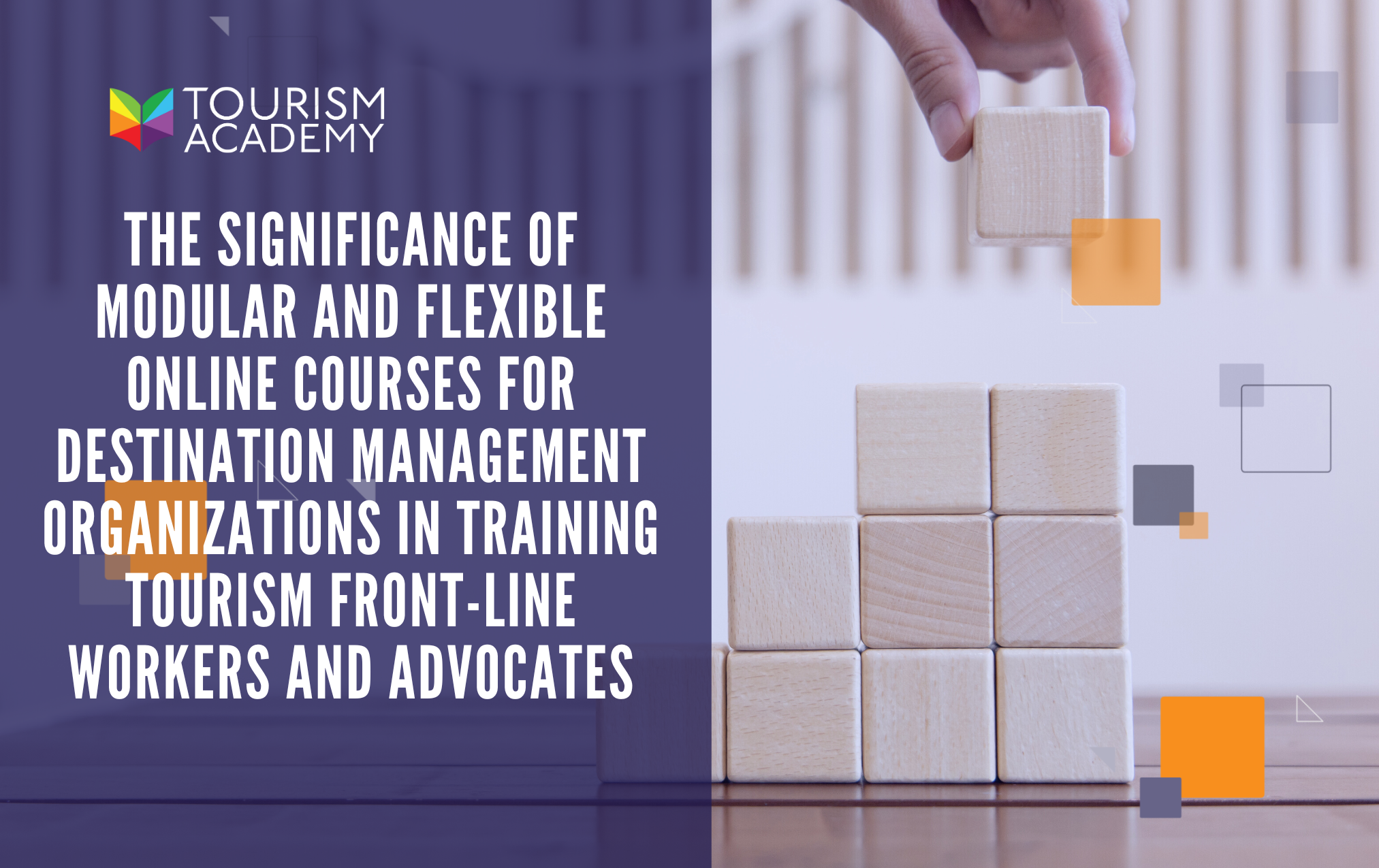
The Significance of Modular and Flexible Online Courses for Destination Management Organizations in Training Tourism Front-line Workers and Advocates
The tourism industry faces unprecedented challenges and opportunities in an era of rapidly evolving technologies and shifting consumer preferences. For Destination Management Organizations (DMOs), fostering skilled and knowledgeable front-line workers, tourism advocates, and ambassadors is crucial to ensure exceptional visitor experiences. There needs to be more than the traditional training methods, making way for the rise of modular, flexible, and easy-to-update online courses. This article delves into the significance of these modern learning approaches and how they empower DMOs to shape a workforce that can adapt and thrive in the ever-changing tourism landscape.
Adapting to Change: The Tourism Industry Landscape
The tourism industry is in a constant state of flux, influenced by factors such as technological advancements, socio-economic trends, and global events. As DMOs strive to provide authentic and memorable visitor experiences, they must equip their workforce with the latest knowledge and skills. However, conventional training methods often need to catch up to the pace of change. This is where modular, flexible, and easy-to-update online courses come into play.
RELATED: The Role of Instructional Design in Modern Training
Modular Learning: Tailored Knowledge Transfer
Modular online courses break down complex subjects into bite-sized units, enabling learners to focus on specific topics. This approach is particularly beneficial for front-line workers and advocates who may have varying levels of expertise and different roles within the DMO. By allowing learners to select and complete modules according to their needs, DMOs ensure that each gains the knowledge most relevant to their responsibilities. This tailored approach enhances training effectiveness, boosting learner engagement and knowledge retention.
Flexibility: Learning at One's Own Pace
The traditional one-size-fits-all training model often needs to improve the learning process for busy front-line workers and advocates. Online courses that offer flexibility in timing and location empower learners to access training materials conveniently. Learners can engage with the content after work hours or during breaks without disrupting their daily routines. This adaptability reduces the burden on learners and facilitates a more positive learning experience.
Keeping Pace with Change: Easy Updates
The tourism landscape is marked by its dynamic nature. Regulations, best practices, and trends can evolve rapidly, necessitating timely updates to training content. Traditional training materials, such as printed manuals or in-person seminars, must be updated and revised. In contrast, online courses can be easily updated to reflect the latest information. DMOs can ensure that their front-line workers and advocates have the most current knowledge, leading to better service quality and visitor satisfaction.
RELATED: Check Out These Case Studies
Enhancing Engagement and Collaboration
Online courses also offer interactive features like discussion forums, quizzes, and multimedia content. These elements foster engagement among learners and encourage sharing of insights and experiences. For front-line workers across various locations, this digital community becomes a valuable platform for exchanging ideas, troubleshooting challenges, and staying connected with the broader DMO network.
Conclusion
In an industry as dynamic as tourism, the ability to adapt and evolve is paramount. Destination Management Organizations play a pivotal role in shaping travelers' experiences, and their workforce needs to be well-equipped to meet the demands of the modern traveler. Modular, flexible, and easy-to-update online courses offer a powerful solution to the challenges of training front-line workers, tourism advocates, and ambassadors. By tailoring learning experiences, promoting flexibility, and staying current with the latest industry trends, DMOs can ensure that their workforce is well-trained, adaptable, and ready to thrive in an ever-changing landscape.


Leave a comment